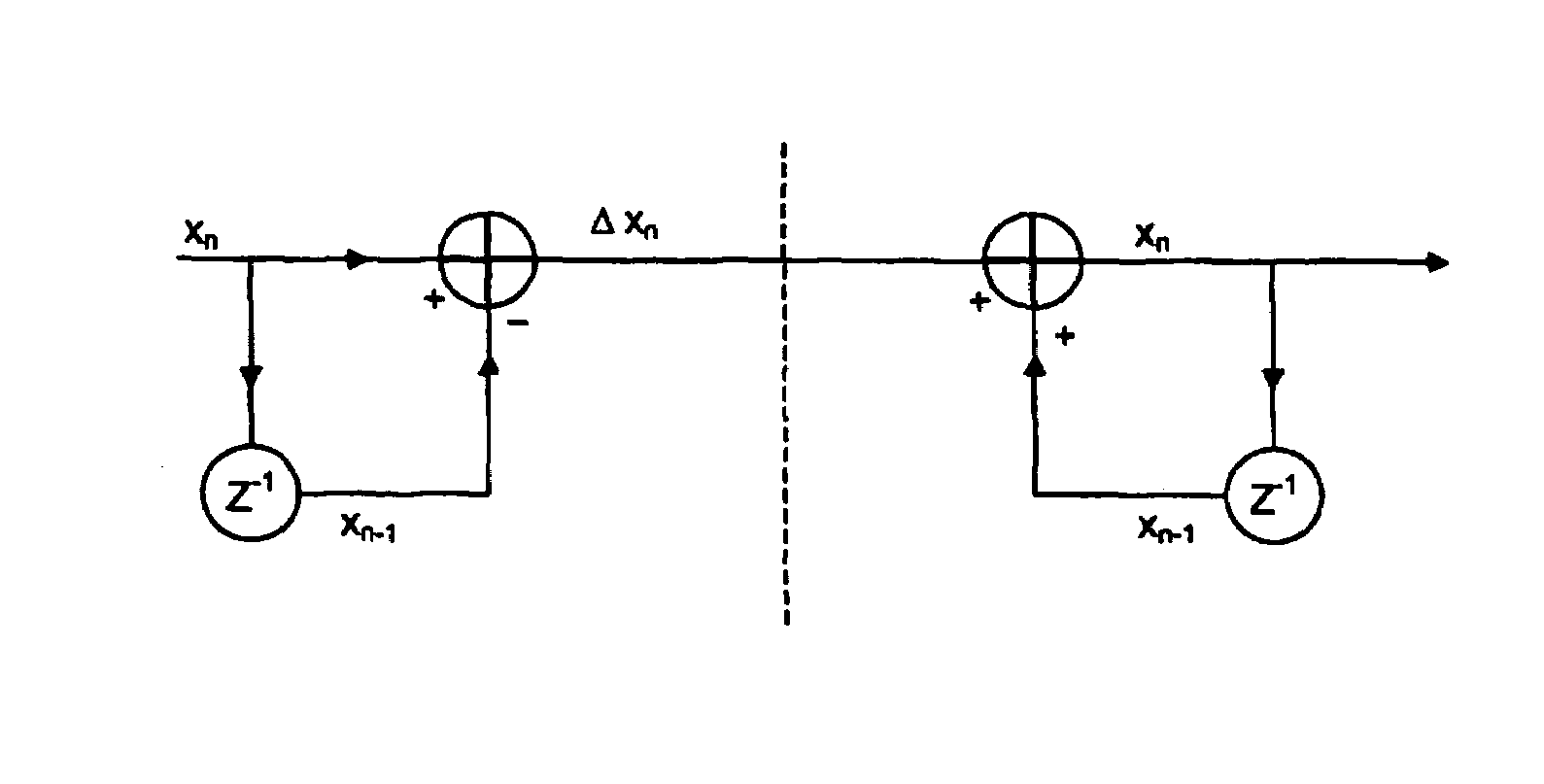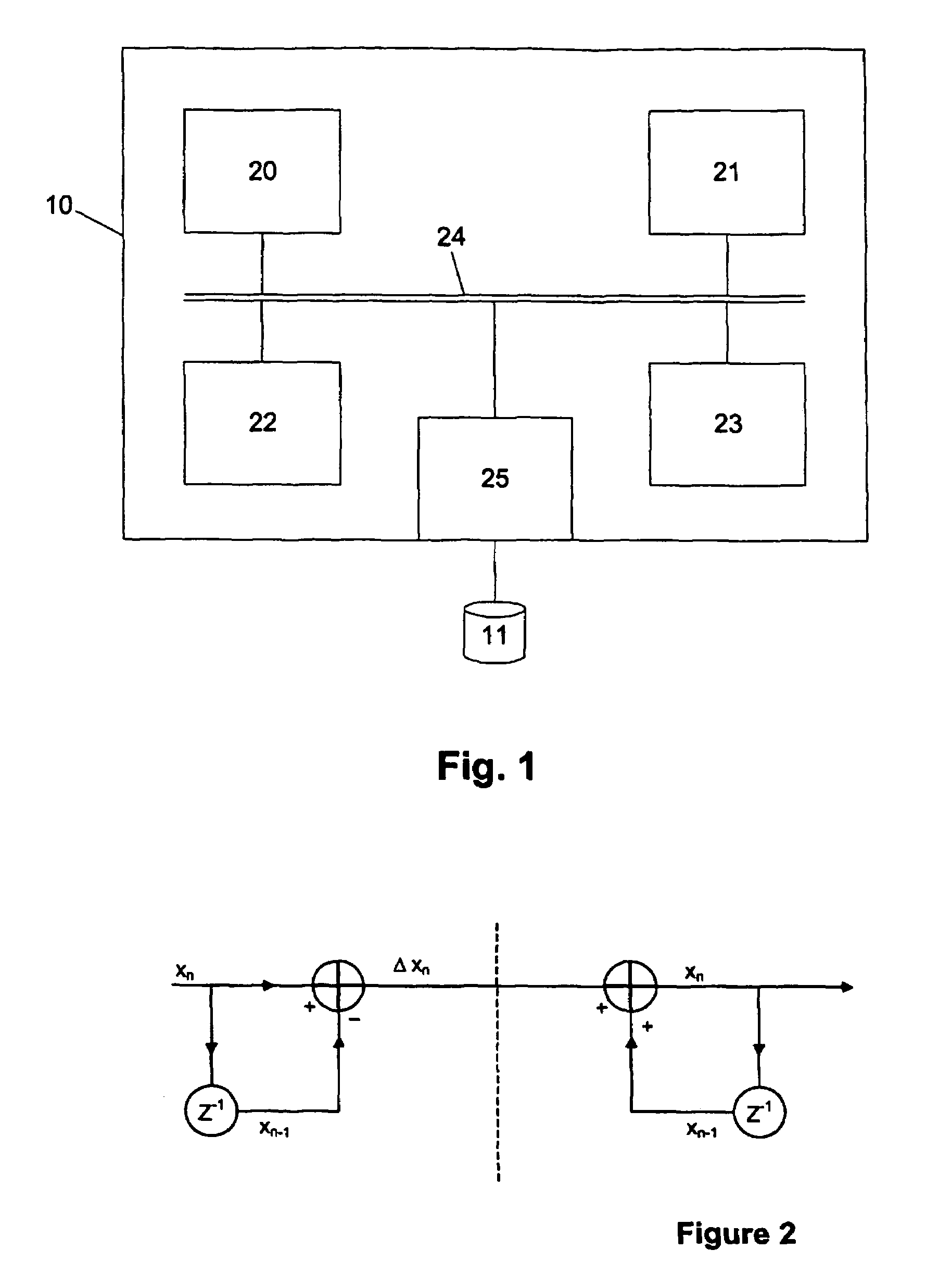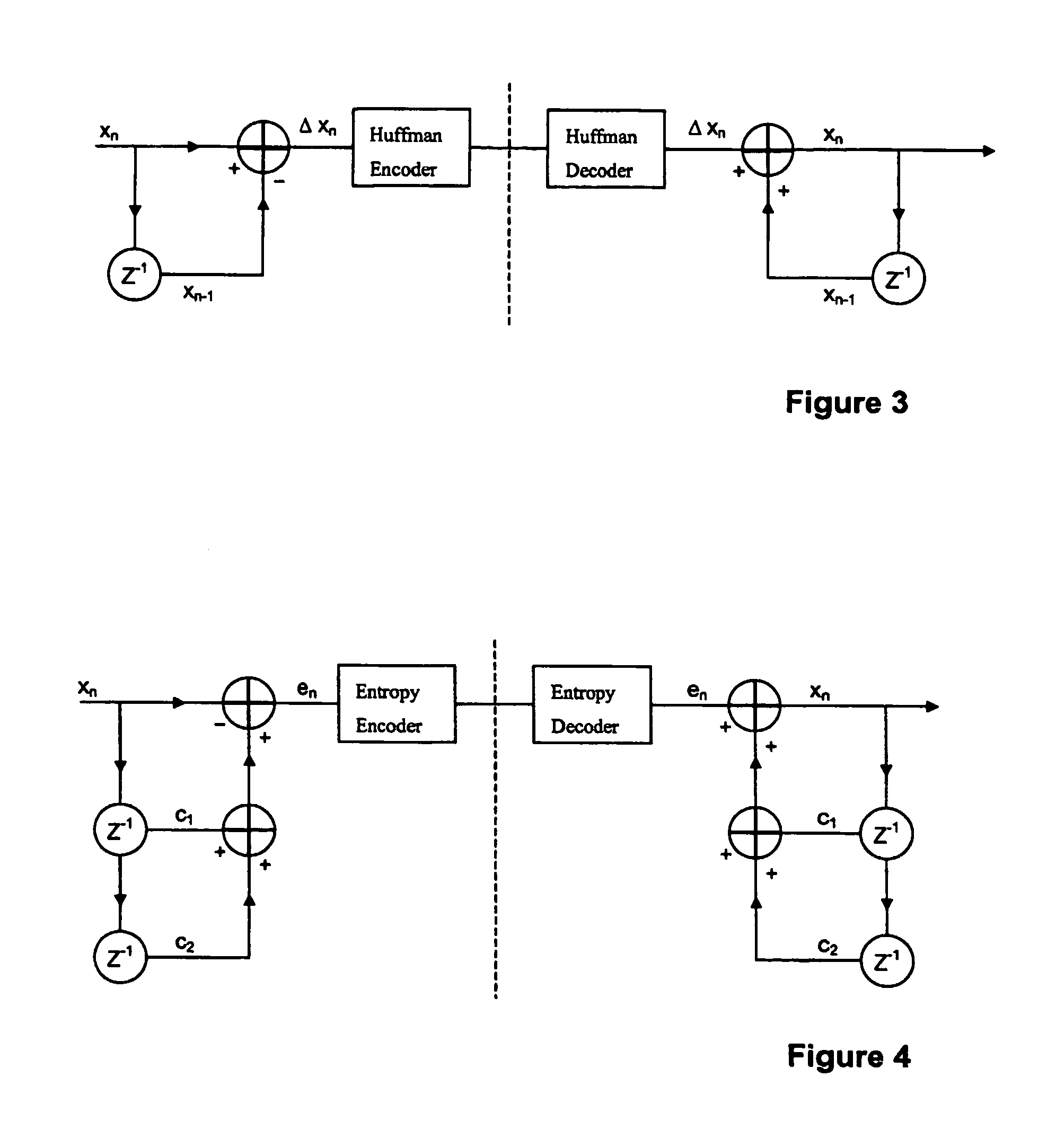Method of compressing digital ink
a digital ink and compression technology, applied in image analysis, instruments, computing, etc., can solve the problems of large amount of memory consumption, prohibitively memory-intensive storage of handwritten data as image files, and unnecessary steps in translating handwritten data entries into ascii text, and achieve quick and simple implementation and enhanced performance.
- Summary
- Abstract
- Description
- Claims
- Application Information
AI Technical Summary
Benefits of technology
Problems solved by technology
Method used
Image
Examples
Embodiment Construction
[0038]The following modes are described as applied to the written description and appended claims in order to provide a more precise understanding of the subject matter of the present invention.
[0039]The present invention provides several embodiments which provide compression of digital ink. In the figures, incorporated to illustrate the features of the present invention, like reference numerals are used to identify like parts throughout the figures.
[0040]A preferred, but non-limiting, embodiment of the present invention is shown in FIG. 1.
[0041]The process can be performed using a processing system an example of which is shown in FIG. 1.
[0042]In particular, the processing system 10 generally includes at least a processor 20, a memory 21, and an input device 22, such as a graphics tablet and / or keyboard, an output device 23, such as a display, coupled together via a bus 24 as shown. An external interface is also provided as shown at 25, for coupling the processing system to a store ...
PUM
 Login to View More
Login to View More Abstract
Description
Claims
Application Information
 Login to View More
Login to View More - R&D
- Intellectual Property
- Life Sciences
- Materials
- Tech Scout
- Unparalleled Data Quality
- Higher Quality Content
- 60% Fewer Hallucinations
Browse by: Latest US Patents, China's latest patents, Technical Efficacy Thesaurus, Application Domain, Technology Topic, Popular Technical Reports.
© 2025 PatSnap. All rights reserved.Legal|Privacy policy|Modern Slavery Act Transparency Statement|Sitemap|About US| Contact US: help@patsnap.com



